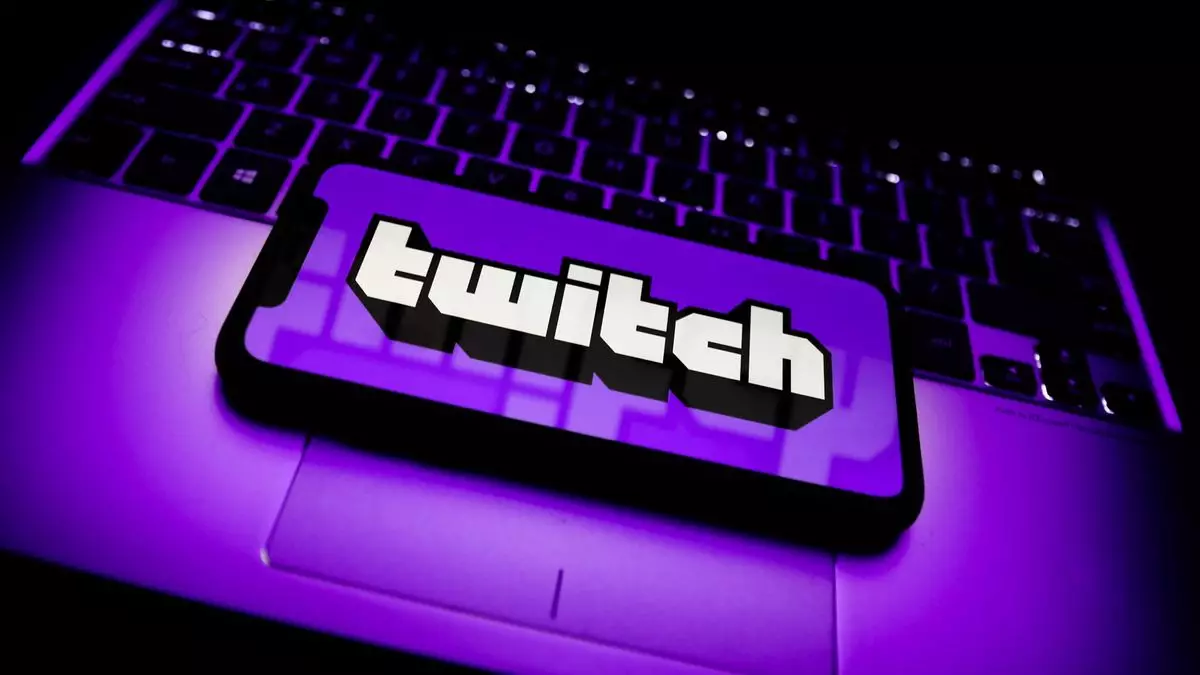In the fast-paced world of live-streaming platforms, Twitch has found itself at the crossroads of community engagement and content regulation, particularly concerning discussions around politics and social justice. Just a week after implementing a new policy requiring streams that delve into “politics and sensitive social issues” to include a content classification label (CCL), the platform made a notable adjustment. This modification exempted streamers who share their “lived experience” from these labeling requirements. While Twitch’s intent appears to be rooted in providing clarity and support to its community, the underlying complexities reveal a larger issue at play—how platforms manage sensitive topics in increasingly polarized environments.
Twitch’s original policy was born out of necessity after a tumultuous period marked by allegations of racism and discrimination. Specific incidents that garnered significant attention included a two-week ban imposed on popular streamer Zack “Asmongold” Hoyt for incendiary remarks related to Palestinians, alongside other marginalized creators penalized for participating in discussions deemed controversial. Twitch CEO Dan Clancy’s declaration—that there was no room on the platform for racism or hatred—was a necessary statement, yet it sparked a dialogue about free expression, particularly for underrepresented communities.
The sensitive content policy’s introduction aimed to empower viewers and advertisers alike, assuring them that they could make informed choices regarding the streams they engage with. However, the initial framing of the guidelines ignited discontent among LGBTQ+ streamers, who felt that their very existence had been politicized. The outrage highlighted the growing tension between self-expression and regulatory measures intended to combat hate.
Twitch’s revised guidelines aimed to quell the backlash without downplaying the importance of responsible discourse. By clarifying that labeling is necessary only when the discussion is explicitly focused on sensitive issues in a “polarizing or inflammatory manner,” the platform sought to alleviate concerns that discussions on human rights—like reproductive rights and LGBTQ+ issues—would automatically be categorized as political.
However, this refinement has not soothed all concerns. The distinction between sharing personal experiences and engaging in politically charged conversations remains subjective. The very essence of lived experiences often intersects with social issues, leading to ambiguity about where to draw the line. A poignant example arises when a streamer discusses their struggle for the right to access reproductive health services. Would this be categorized as a personal narrative or an inherently political stance? The lack of a clear demarcation leaves both streamers and moderators grappling with challenging judgments in a heated atmosphere.
Despite the tweaks made to the content classification guidelines, many in the Twitch community perceive the alterations as surface-level changes rather than substantive progress. A wave of discontent surfaced on social media, where users voiced skepticism over the efficacy of the adjustments, hinting that a change in vocabulary alone does not necessarily translate to a more supportive environment for marginalized voices. In fact, many LGBTQ+ streamers fear that the vagueness of the language still places them in a vulnerable position, where their advocacy and discussions could be misconstrued as political.
A post calling for the removal of the contentious guidelines gained traction on Twitch’s UserVoice forum, drawing over 38,000 votes before the comments were closed. This reflects a strong desire for clearer, more actionable policies that genuinely protect all users rather than simply offering Band-Aid solutions to simmering issues.
The dialogue that Twitch is navigating is emblematic of a larger cultural reckoning within digital spaces. The platform’s struggles highlight the challenges of moderating speech in environments that thrive on diverse voices and perspectives. The conversations surrounding Israel and Palestine have heightened tensions, with calls for Twitch to prioritize inclusivity in its community guidelines.
While Twitch’s intentions to combat antisemitism and other forms of hate are commendable, the approach could be seen as problematic if it inadvertently marginalizes essential conversations about identity and social justice. The reality is that existing as a member of a marginalized group is often a political act in itself, and platforms must consider the implications of categorizing discussions on rights as political discourse.
As Twitch continues to evolve its policies, it must prioritize building community trust through consistent and meaningful action. The road ahead is fraught with challenges as the platform grapples with the dual demands of providing safe spaces while honoring free expression. By acknowledging the complexities and nuances that accompany discussions on sensitive topics, Twitch can set a precedent for other platforms navigating similar issues. Success will depend on their ability to engage with the community, listen to feedback, and adapt rules that genuinely protect users from hate while enabling open dialogue. The struggle is far from over, but the potential for growth and understanding remains.

